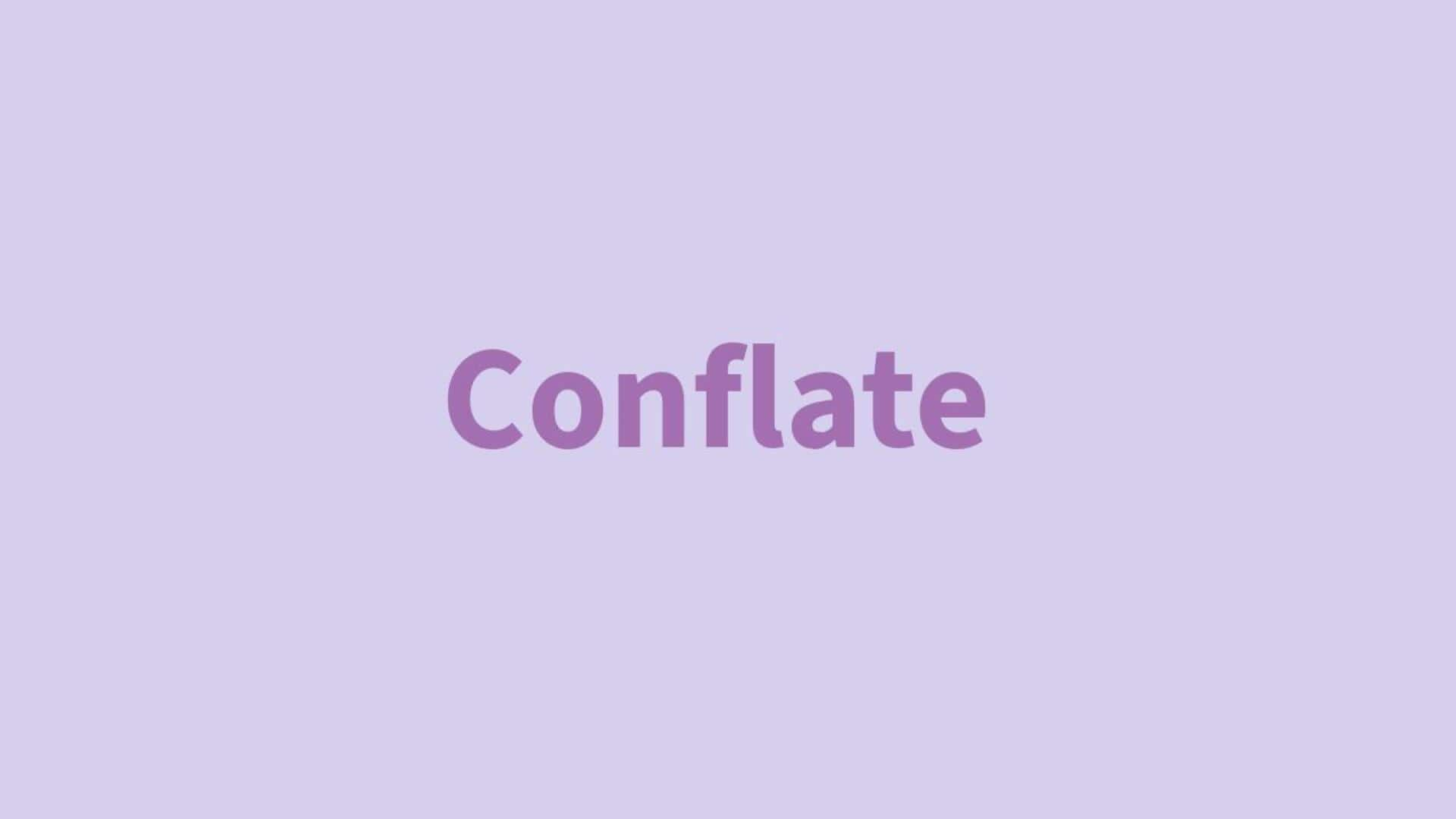
Word of the Day: Conflate
What's the story
The word "conflate" is a verb that means to combine two or more things into one, often blending different ideas, concepts, or elements into a single entity.
It can be used to describe the merging of texts, ideas, or even opinions, sometimes leading to confusion when the individual components are not clearly distinguished.
Origins
Origin of the word
"Conflate" comes from the Latin word conflatus, which is the past participle of conflare, meaning "to blow together" or "to combine."
The prefix con- means "together," and flare means "to blow."
Initially used in the context of melting or fusing metals, its meaning expanded over time to include the combining of ideas or texts in modern English.
Synonyms
Synonyms for 'conflate'
Synonyms for "conflate" include combine, merge, blend, fuse, and amalgamate.
These words all convey the idea of bringing separate things together, though some, like merge or amalgamate, may have a stronger sense of integration or unity than conflate, which can sometimes imply confusion.
Usage
Sentence usage
Here are a few ways to use "conflate" in sentences:
"The journalist mistakenly 'conflated' two separate incidents into one story."
"It's important not to 'conflate' personal opinion with factual reporting."
"In the debate, he tried to 'conflate' the issues of immigration and economic policy."
"The professor warned against 'conflating' historical events without careful analysis."
Literature
Why use the word
Using "conflate" adds precision to your writing when discussing the merging of ideas or concepts.
It is particularly useful in academic, journalistic, or analytical contexts where clarity is important, and you want to highlight that separate elements are being combined, often in a way that could obscure differences or lead to misunderstanding.